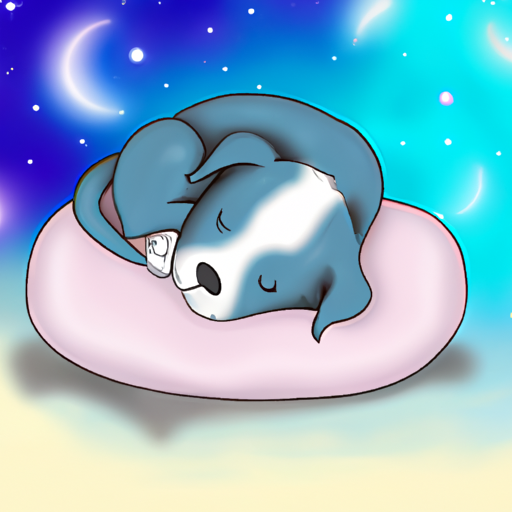Introduction
As a caregiver, you might have noticed the joy and serenity that a sleeping puppy brings to your home. You might have also asked yourself questions about the puppy’s sleep habits, patterns, and needs. This guide will provide you with in-depth insights into everything you should know about your little furball’s sleep.
Understanding Puppy Sleep Needs
Just like a newborn baby, your puppy requires a large amount of sleep. Puppies sleep approximately 18 to 20 hours a day, but this varies depending on their breed, size, and activities.
- Small breeds – They often require more sleep.
- Large breeds – They tend to sleep less.
Your puppy’s sleep is crucial for their growth and development, so make sure they get enough rest.
The Puppy Sleep Cycle
You might be surprised to learn that puppies, like humans, go through different stages of sleep. Here’s a table showing the comparison:
| Humans | Puppies | |
|---|---|---|
| REM Sleep | 25% of sleep time | 44% of sleep time |
| Deep Sleep | 20-25% of sleep time | 23% of sleep time |
| Light Sleep | 50-55% of sleep time | 33% of sleep time |
Notice that puppies spend a lot of time in REM sleep, which is when they dream. So if you see your puppy twitching or whimpering in their sleep, don’t worry—they’re just dreaming!
Creating a Comfortable Sleep Environment
Your puppy’s sleep environment is critical to their sleep quality. Here are some tips to create a cozy sleep space:
- Bed: Invest in a comfortable, warm, and size-appropriate bed for your puppy.
- Location: The bed should be in a quiet, low-light area.
- Blankets & Toys: Adding a soft blanket and a favorite toy can make the space feel safer.
Establishing a Sleep Routine
Routine is key in a puppy’s life. Establishing a consistent sleep schedule will help regulate your puppy’s internal clock, making it easier for them to fall asleep and wake up at the same times each day.
- Morning: Wake up, feed, and play.
- Mid-morning: Nap time.
- Afternoon: Feed, play, and walk.
- Evening: Feed, play, and bedtime.
Remember, consistency is key!
Dealing with Sleep Disturbances
Sometimes, your puppy might have trouble sleeping. This could be due to reasons like teething, anxiety, or illness. If your puppy is consistently having trouble sleeping, consult with a vet to identify and address the problem.
The Importance of Sleep for Puppy Training
Sleep plays an integral role in training your puppy. A well-rested puppy is more likely to be focused and receptive to training. Try to schedule training sessions after your puppy has had a good sleep.
FAQs on Puppy Sleep
Q1: Why does my puppy sleep so much?
A1: Puppies sleep a lot to support their rapid growth and development.
Q2: Is it normal for puppies to twitch in their sleep?
A2: Yes, it’s normal. It’s usually a sign that they are dreaming.
Q3: How can I help my puppy sleep through the night?
A3: Establish a consistent bedtime routine, ensure their bed is comfortable, and make sure they’ve gone to the bathroom before bed.
Q4: My puppy seems to be having trouble sleeping. What should I do?
A4: If this is a consistent problem, consult with a vet. It could be due to various reasons like teething, anxiety, or illness.
In conclusion, your role as a caregiver to a sleeping puppy is crucial. By understanding their sleep needs, creating a comfortable environment, and establishing a consistent routine, you can ensure that your puppy is well-rested, healthy, and happy.



